New Delhi: In the biting cold of January, little Aarfa runs across the streets of Shaheen Bagh clutching a tricoloured flag and a tomb that she drew on a white piece of paper.
While the central protest area persistently resounds with witty slogans and calls for revolution, many children bustle about the local shops located in the neighbourhood. The shops that have pulled down their shutters in support of the ongoing protests have been decked up in colours, and staircases have been converted into what looks no less than a chaotic, lively classroom.
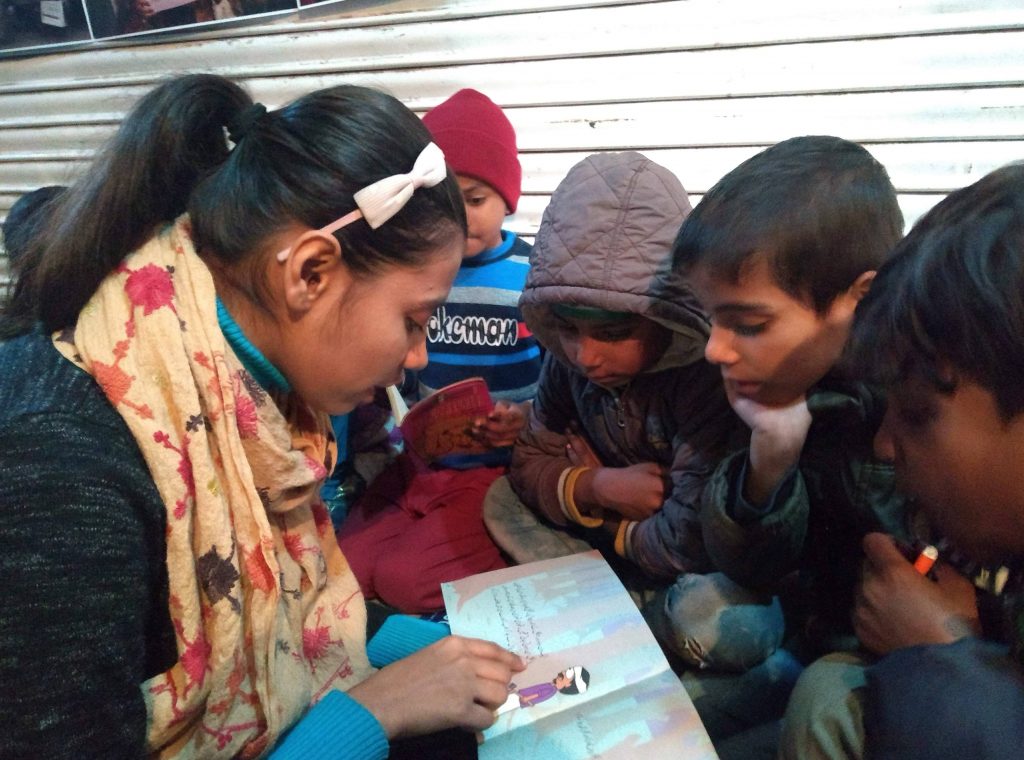
A teenage volunteer teaching children how to read.
“Many women are juggling protesting and looking after their kids,” says Younus Nomani, a student of Jamia Millia Islamia. “To encourage every woman in Shaheen Bagh to step out and resist, we created a space in the neighbourhood where their children can be looked after.”
This unusual classroom, built at the doorstep of a showroom, is loaded with mattresses, daris, books and artwork. The walls near the staircases are covered with posters made by several artists and writers.
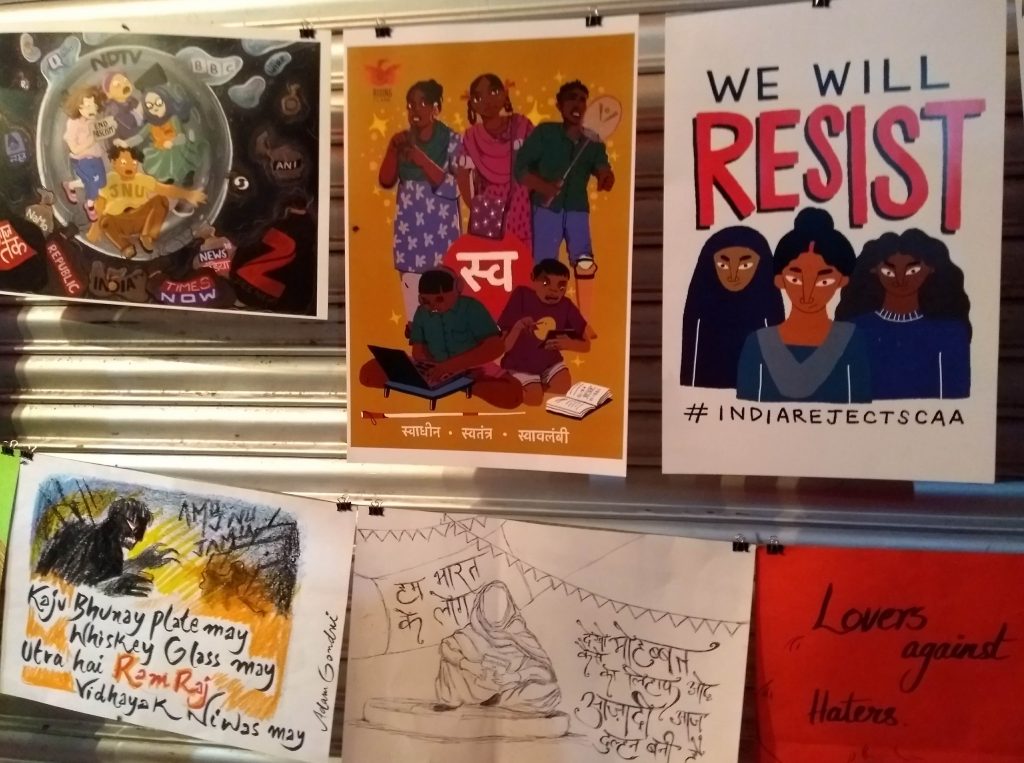
Some of the posters at the makeshift school.
“Coming here is always fun,” says Reema, a Class 8 student, who lives in Shaheen Bagh. “We get to read and draw as much as we want; something that we don’t do much at school. It is different from our schools and that’s why I love coming to this place every day.”
Inspired by Read For Revolution initiated by the students at Jamia Millia Islamia, this learning space is an alternative education space that is quite the opposite of a conventional education system with the inclusive lessons it hosts for the around 200 children each day.
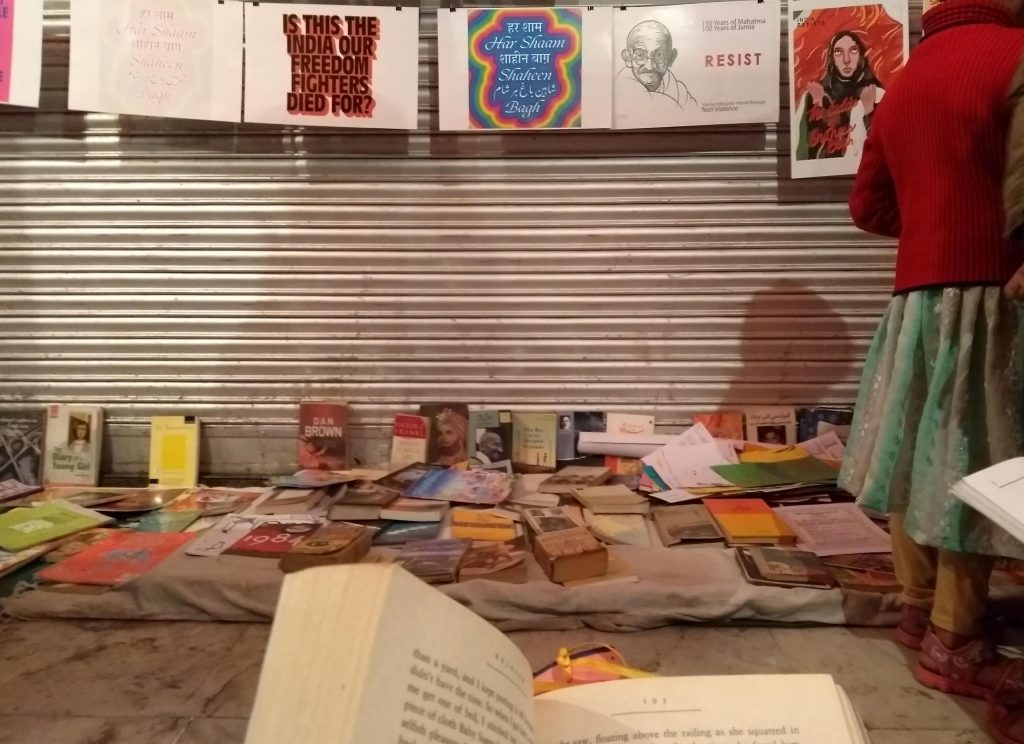
The donation area for books and other learning material. Other protestors are also welcome to sit and read there.
“We created this space on January 1 to spend time with the children,” says Younus. “Every day, we give them different prompts from the latest affairs and politics to draw or write about. We may be defying our present education system since we are urging our kids to talk about politics instead of keeping them at arm’s length about what is happening right now. From the Australian bushfire to the deadly attack on Jawaharlal Nehru University, the children present their opinions on everything, discuss everything. We often conduct storytelling exercises as well.”
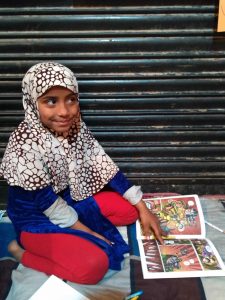
Aarfa with the graphic novel.
“I love coming here every day because I get to draw and learn things that my Ammi was never able to,” says Aarfa as she flips through the pages of a graphic novel.
Around 10 volunteers like Younus have come together and helped create this ecosystem in the lane of Shaheen Bagh. The space is usually set up at 3 pm every day. Among those who visit the area are artists, writers and tutors and people from all walks of life who have stepped out to protest the Citizenship Amendment Act (CAA) and the attacks on various universities across India.
“The visuals are the heart of this space,” says Younus about the 45 plus bits of artwork that deck the walls of the staircase-turned classroom.
“We decided to cover this space with visuals because not only do they convey powerful messages against biased laws, but they also help the children grasp and learn faster. Today, most of the walls are covered with beautiful art, posters, and poetry contributed by the children.”
“All of us are trying to make a difference,” says Nazish, a second-year college student and a resident of Shaheen Bagh. “Coming here regularly has been quite different from my regular routine. The parents of many kids who come here are usually protesting outside at this time. Truth to be told, I come here for the kids. To see them smile while I figure out what they want to learn is reason enough for me to be part of this space.”
“While people protest on the streets, we are spending time with our children. We need more self-aware, sensitive and responsible citizens tomorrow so that hatred and violence are brought to an end. And we can do that only by helping children ask the right questions today and stand up for what is right,” says Younus.

Some of the drawings made by the children who visit the classroom.
As the sounds of revolution echo across the walls of this makeshift classroom, a volunteer hands over a postcard to every visitor before they leave.
“We make an effort to give something to everyone who stops by and supports us,” says Usama Zakir, another volunteer at this classroom as he hands an illustration of a woman at Shaheen Bagh to a protestor. “Our postcards consist of art and writings usually paying tribute to people who’ve shown the courage to step up with us.”
“Most importantly, we look at our postcards as tokens of love; something that we hope the people of New Delhi can remember Shaheen Bagh by,” adds Younus.
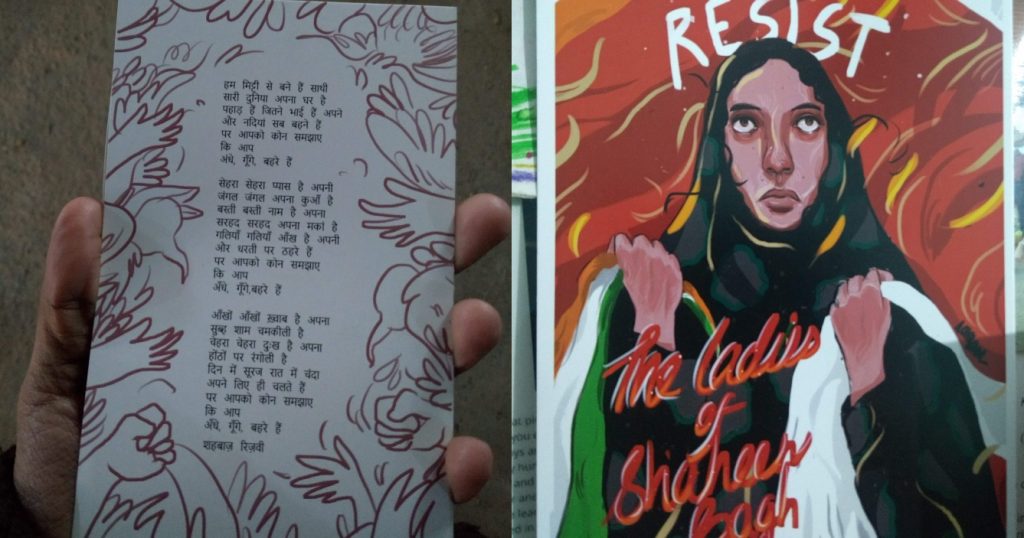
A couple of the postcards being distributed at the safe classroom to all visitors.
Protesting relentlessly, the women of Shaheen Bagh have entered the second month of their everyday resistance. The movement was catalysed by Delhi Police’s brutal attack on the students and staff of Jamia Millia Islamia who were protesting against the National Register of Citizens and the CAA.
As the women continue sitting outside their homes, the shops remain shut, the children continue reading, and Shaheen Bagh roars with a thousand voices demanding freedom to live in a country that belongs to them.
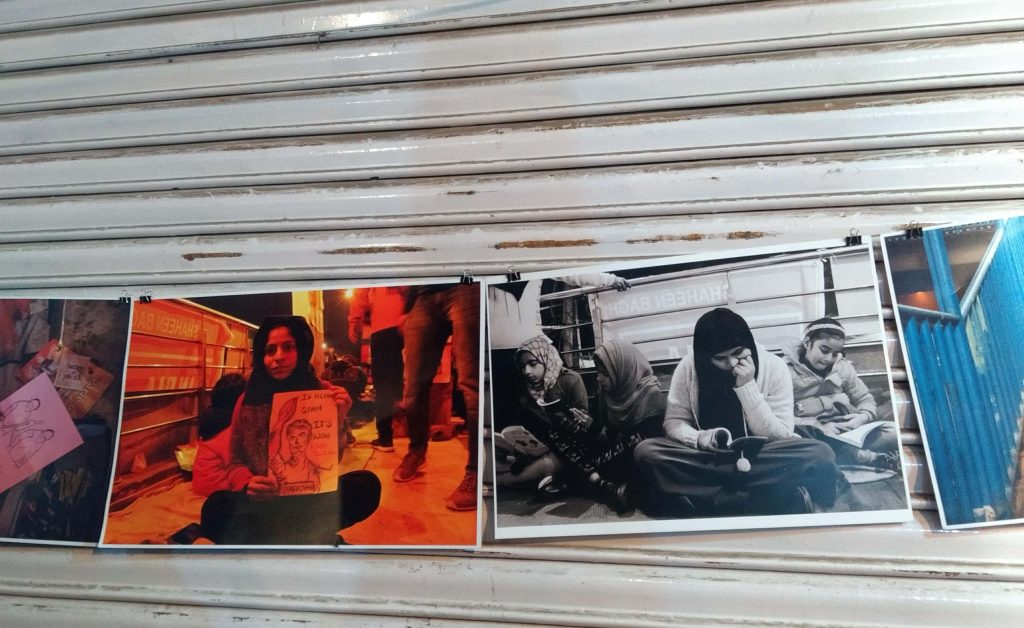
More posters and photographs.
Ayushree makes books for children at Katha and has been working in the space of education since 2016. Some of her writings have appeared in Outlook India, The Times Of India, Newsd, Feminism In India and more.
All photos by the author.

